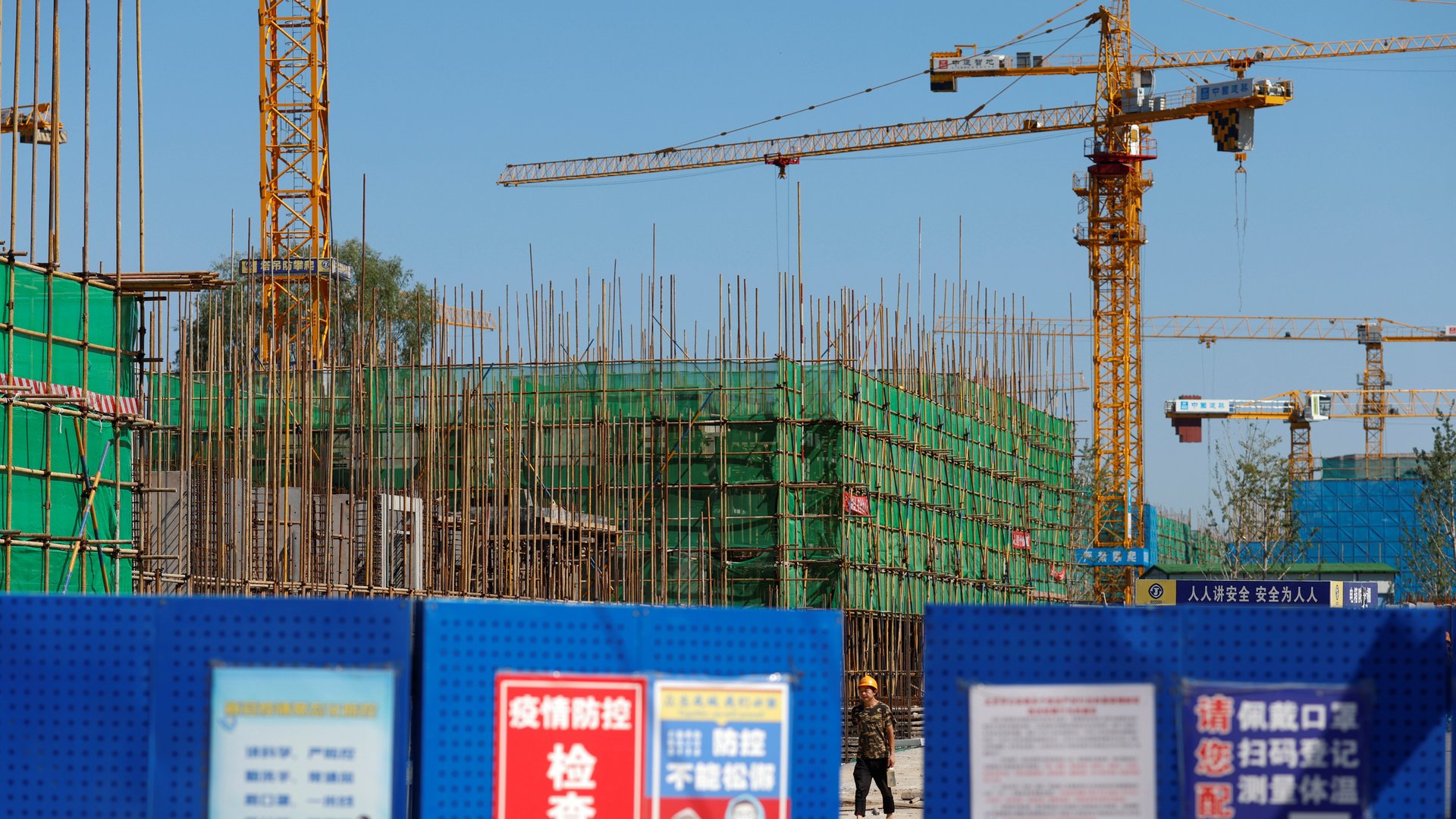What ‘financial weapons of mass destruction’ are telling us about Evergrande
Wall Street traders are betting the world’s financial wiring is insulated from Evergrande’s troubles, but that doesn’t mean the world’s economy is immune to the fallout.


Wall Street traders are betting the world’s financial wiring is insulated from Evergrande’s troubles, but that doesn’t mean the world’s economy is immune to the fallout.
As the Chinese real-estate developer and its $300 billion of debt teeter on the edge of default, the turmoil in China’s property market is buffeting stock markets and boosting demand for government bonds. The malaise is also showing up in the credit-default swaps (CDS) linked to major banks, from the Industrial and Commercial Bank of China to JPMorgan in New York.
CDS, which investor Warren Buffett once lovingly called “financial weapons of mass destruction,” allow traders to speculate on the likelihood that a bond will default and to hedge those risks. When CDS spreads increase, or widen, a buyer has to pay more for that insurance. Bank CDS and stock prices “tend to be early indicators that the risk is crossing to international financial markets,” said Francesc Rodriguez Tous, a finance professor at Bayes Business School in London.
Big banks like JPMorgan and Deutsche Bank are tightly intertwined to risks emanating from financial markets as well as economic growth, as both have an effect on the value and health of their assets. Right now CDS traders appear to be betting that banks are a little riskier than they were a week ago—particularly institutions like HSBC, whose prospects are closely linked to China, and of course China’s largest bank. But CDS levels aren’t signaling anything resembling financial armageddon. CDS linked to JPMorgan are priced at around 45 basis points, according to FactSet and IHS Markit data. By contrast, JPMorgan’s CDS traded at 140 basis points or more during the subprime crisis in 2008 and the euro-zone crisis some three years later.
What does the Evergrande meltdown mean for China?
Evergrande, unlike the American subprime mortgages that infected bank balance sheets from New York to Frankfurt, seems relatively isolated from most of the world’s financial system. But China’s economy is not: Evergrande is a sign that growth in Chinese gross domestic product—which has been a driver for the world’s economy—could sputter, said Fraser Howie, co-author of Red Capitalism: The Fragile Financial Foundation of China’s Extraordinary Rise and a former equity-derivatives trader at Morgan Stanley. “The China risks have been effectively underpriced for a long time,” he said. “The growth has been driven in China by debt and projects that can’t pay for themselves.”
China may be running out of room to use real estate and debt to hit its GDP targets. Pivoting to another model for GDP expansion will likely cause growth to slow, as real estate and construction make up around a quarter or more of China’s economy, according to some estimates. That has wide repercussions, as China’s was the only major economy that grew last year and is expected to have the second-fastest-growing GDP in 2021 (behind India), according to the International Monetary Fund. If Chinese growth slips, that will ripple westward through everything from jobs at steel mills to stock prices in retirement portfolios.
Most experts think Chinese authorities will prevent Evergrande from falling into a disorderly default, which is likely another reason financial stress around the world doesn’t appear to be higher. But even though Chinese authorities can tell Evergrande’s creditors to ease up on the property developer to avoid an unruly implosion, doing so may push the problem to another day and become its own drag on economic growth, Howie said. “You’re going to kick the can down the road and see growth become slower and slower,” he said.
Put another way, the days of China propping up growth for itself and much of the rest of the world could be coming to an end.